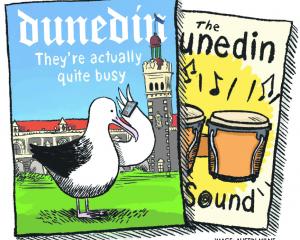
Seated at the bar, the youngish man and I had done the preambular stuff, the names, the handshake, the what-brings-you-here? He seemed personable, quick, engaging. I guessed he was in his early thirties.
"What sort of story?" he said.

He paused.
People often don’t realise how many stories they have unless you give them a prompt.
"Tell me about when you were most frightened," I said. Fear gives a story the bright red tang of honesty.
"That’s easy," he said, but he didn’t embark on the story straightaway. To admit fear is to admit weakness, and a youngish man is naturally reluctant to admit weakness.
"You don’t have to," I said, because I didn’t want to deter him, and I did want to retain his company.
"It’s OK," he said, and there in the pub, on the weekend before Christmas, he told me.
It had happened some years before. He’d gone overseas, ended up working in one of the oil-rich countries.
The money was good, the sunshine constant, and within the ex-pat enclave there was little evidence of an oppressive regime. Life was easy and felt exotic.
With cash in his pocket, he went on holiday to visit an old friend in Amsterdam and the two young men did what young men do in Amsterdam, and indeed elsewhere.
But then he returned to the oil-rich state and it was waiting for him. It tested him for drug consumption.
The structure of these states is always the same. There’s a local elite that owns the country (though the word elite here has none of the connotations of excellence or expertise).
There’s an ex-pat community that has the expertise but not the indigeneity. The ex-pats are mostly white and come from Europe, the States, Australasia.
And then there’s an underclass of locals without status, a subordinate tribe or racial group, and workers brought in from poor countries that teem with the young, of which there’s no shortage in Asia and the Indian subcontinent. These workers have few rights, but they are there because, however bad things are, they’re better than back home.
This underclass does the physical work. The ex-pats do the professional work. The elite loll on the profits, and retain the political power.
Quite why the authorities zeroed in on this young man I’m not sure, but he tested positive for recent inhalation of a mild narcotic. And he was seized.
All puritanical regimes are, and always have been, hypocritical. The kings and rulers, sheikhs and potentates, and all their huge extended bloated families and other hangers-on are orgiasts and self-indulgers. But it suits them to enforce the rules on others.
Also, in these oil-rich states they like to put the wind up the ex-pat class from time to time, to remind them who has the whip hand. It keeps the ex-pats in their place and on their toes.
And so this lad of 22 or so was seized and driven in a prison bus to a lock-up in the desert (they always keep these things some distance from the glitz of their cities). And the detail that clinched the story and the misery of the moment was that he was chained by the ankle to the floor of the bus.
The moment that chain was clamped around his young leg was when he knew he’d left the reasonably fair world he was familiar with and entered one of quite a different nature. His cheerful innocence had run head-on into power without conscience.
They banged him up in jail. They told him he would probably get 10 years. Another inmate told him he wouldn’t survive 10 years. He was facing the end of his life.
The youngish man paused in his story-telling.
"Bloody hell," I said.
"Yeah," he said, remembering.
Through the consulate, he was able to send word to his parents.
They flew to try to rescue their son.
Eventually they found a go-between, a fixer. Then it was a matter of finding out what it took to bribe a judge. What it took was thirty thousand bucks.
Happy new year.
• Joe Bennett is a Lyttelton writer.













